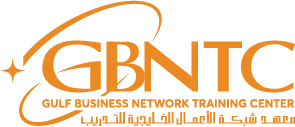In modern business environments, the integration of innovative climate control solutions has become a cornerstone for achieving sustainability goals. Environmental efficiency is not merely a trend; it represents a fundamental shift towards responsible resource utilization. Through smart controls, organizations can monitor and optimize their climate settings, thus minimizing waste and reducing operational costs. For more insights into resource management, check out this resource.
The increasing focus on eco-friendly practices has prompted businesses to seek out advanced technologies that align with their green initiatives. These state-of-the-art controls not only enhance comfort but also contribute significantly to energy savings. By leveraging integrated approaches, companies can prioritize their environmental commitments while ensuring operational integrity.
Optimizing HVAC Design for Energy Efficiency
Enhancing the configuration of heating, ventilation, and air conditioning solutions is crucial for reducing operational expenses and achieving sustainability goals. By incorporating https://fantasticair.net/ modern technologies like smart controls, facilities can fine-tune performance monitoring and optimize energy usage. These advancements enable operators to adapt system settings in real-time based on occupancy and environmental conditions, thus maximizing comfort while minimizing waste.
System optimization is key in identifying areas where energy consumption can be reduced significantly. Utilizing data analytics allows for pinpointing inefficiencies and implementing adjustments–a proactive approach that aligns with ongoing efforts to meet ecological targets. By prioritizing advancements such as variable refrigerant flow (VRF) systems and high-efficiency boilers, establishments can achieve substantial cost reductions while supporting a greener future.
Incorporating advanced insulation and strategic ductwork placement complements the deployment of intelligent technologies. Combining these elements not only enhances overall functionality but also ensures a substantial decrease in energy expenditures. Continuous performance monitoring becomes the backbone of operational success, allowing for timely interventions that keep initiatives on track to fulfill sustainability commitments.
Integrating Smart Technologies in HVAC Systems
Incorporating intelligent technologies into climate control solutions is pivotal for enhancing performance and achieving sustainability targets. Smart controls allow for precise adjustments based on real-time data, ensuring optimal operation and contributing to significant cost reduction. By adopting these advanced features, companies can effectively streamline resource utilization, fostering a culture of eco-friendly practices.
Discover new game releases on https://fantasticair.net/ and stay ahead of the curve.
Performance monitoring through smart sensors provides valuable insights into system optimization, enabling proactive maintenance and reducing downtime. This data-driven approach facilitates informed decision-making, aligning operational practices with long-term goals for energy conservation and resource management. As businesses increasingly recognize the benefits of integrating smart technologies, they pave the way for a more sustainable future and greater operational efficiency.
Regulatory Compliance and Cost Savings through HVAC Management
Adhering to regulations is a key focus in optimizing performance for heating and cooling equipment. Organizations strive to meet local and national standards that mandate energy efficiency, safety measures, and environmental protection. Proper management of climate control technologies not only ensures compliance but also contributes significantly to sustainability goals. For detailed information on compliance standards, visit DOE Energy Efficiency.
Implementing robust performance monitoring tools enables businesses to track energy consumption patterns effectively. By utilizing smart controls, operators can automate adjustments based on real-time data, reducing unnecessary energy use. This strategy leads to notable cost reduction while extending the lifespan of equipment through targeted maintenance strategies. Regular assessments and upgrades of these systems further support ongoing compliance with evolving regulations, thus aligning operational practices with broader sustainability initiatives.


Comments are closed